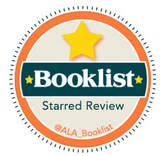 What is the name of the piece that you have in Grabbed? “Hitchhiker” What was the inspiration for your piece? What compelled you to write it? It’s odd to think of trauma as inspiration, but humans have been using art, whether it’s music or painting or the written word, since the beginning to tell stories about their lives. I survived what could have been a fatal attack. I buried the incident for decades. Poetry offered me a way to control the narrative, to transform the trauma into something new, outside of myself. What compelled you to submit your work for this anthology? Was it a difficult decision? I had already submitted this poem a few places and had it rejected. I was happy when it found a home in Grabbed. To be part of a community, to reach readers in a meaningful way is important. For other survivors of sexual assault, and for a larger audience. Sexual violence is all about power and silencing. The more we speak out, the more we reclaim our power. Why did you choose this particular form or genre for this piece? The main reason is that I’m a poet, not a writer of memoir or fiction. I like the freedom that poetry gives me. Compression, wielding of imagery and metaphor—these are tools for turning thought, feeling, and memory into the lyric. Can you speak to the evolution of writing your piece? How long did it take you to write this piece, including revision? It took me 30 years before I tried to write about what happened to me. And even then, it wasn’t until I read a poem by Charles Rafferty that I was able to find a way in. It’s often good practice to model a poem on someone else’s. In this case, it afforded me a certain distance from the material. As a writer, do you feel obliged to share difficult experiences? I’m not sure “share” is exactly the word. I think writing, poetry in particular, gives us the opportunity to transform our experiences, and ideally, ourselves. I agree with the poet Gregory Orr who says, “I believe in poetry as a way of surviving the emotional chaos, spiritual confusions, and traumatic events that come with being alive.” What do you feel the impact of the #MeToo movement has been on your work, if any? I think the outpouring of stories, of voices, has given me a feeling of validation, a recognition that my experience matters, that it’s a piece of a bigger story. What would you say to another writer who has been uncomfortable or silent about their experience? How can they begin to share their experiences? Again, maybe “share” isn’t exactly the word. What writing affords, particularly forms like poetry and fiction, is a way to take the raw material of one’s life and turn it into something powerful or beautiful or comical or satirical, even all of those things at once. And that is what is shared with the reader. It is still a vulnerable act. I think getting distance is helpful, whether it’s time or writing in the third person or in the voice of a fictional character. For me, the key is taking control of the narrative. How can a publication such as Grabbed help to empower or heal readers? Knowing one isn’t alone is very healing. Witnessing others speak out about their experiences, turn them into art, can be an inspiration. As I mentioned, sexual violence is a kind of silencing. Anthologies like Grabbed are the opposite of silence. Cynthia White’s poems have appeared in Massachusetts Review, Narrative, ZYZZYVA, Grist, and Catamaran among others. She was a finalist for Nimrod’s Pablo Neruda Prize as well as New Letter’s Patricia Cleary Prize, and was the winner of the Julia Darling Memorial Prize from Kallisto Gaia Press. She lives in Santa Cruz, California.
0 Comments
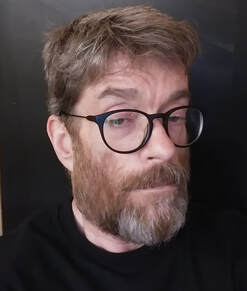 What is the name of the piece that you have in Grabbed? A Brief History in Pink What was the inspiration for your piece? What compelled you to write it? An incredible conversation with Robert Hass at the Miami Book Fair, my own weariness with overt and covert homophobia, allies in private talking as if we were vermin, the pendulum swing of folks succumbing to compassion fatigue as they tire of political correctness, four months of nightmares preceding my lover’s death, a perfect storm of disgust, disappointment, anger, and grief. What compelled you to submit your work for this anthology? Was it a difficult decision? I am, in general, oblivious to publishing opportunities. I used a submission service for a while otherwise I’d have even fewer publishing credits. A trusted friend requested that I send some work. I don’t think I understood the magnitude of the Anthology’s undertaking at the time. It is much bigger than I could have imagined. Had I known then, I probably would have fearfully begged off. Why did you choose this particular form or genre for this piece? It’s a performance piece. A bit of psychodrama. Initially I spread it out over multiple columns and pages with a whole lot of space but that’s not true to the feeling of the piece especially after some drastic cuts (approx one third of the poem). It became a claustrophobic piece and that led to its final utilitarian form. I can’t wait to make the video; it will probably need a seizure warning. Can you speak to the evolution of writing your piece? How long did it take you to write this piece, including revision? Sometimes a rant writes itself. Or seems to. The words and feelings behind them get dammed up until they explode out into the world, a bit like projectile vomiting and possibly in the first draft more therapeutic to the writer than to the reader. The clichéd answer is it took however many years I was old at the time. I don’t fully know how to describe being queer and long term positive in a straight world. I don’t want to demonize the masses but the constant micro and macroaggressions are wearing. I didn’t start the piece with a destination in mind but when the first line wrote itself I knew I was in for a ride. Sometimes large events are like planets that pull everything around themselves into orbit. I’ve been writing AIDS elegies for decades but I couldn’t write a Laramie or a Pulse Nightclub poem, but it turned out I needed to, I needed to mourn the fear and hatred in this world and its many casualties. My lover was shot and killed in March of 2018, I have a memories of him dancing in pink knee high sneakers. He certainly informed this piece but I made him wait for a different poem or two of his own. Revision took the longest, editing for presentation and flow. The poem had a whole other section where the narrator was, in a forced and desperate way, grasping at some sort of peaceful resolution. It stank like the lying, rotting, lifeless thing it was, and eventually I lopped it off in its entirety. Often, editing the line between hope and wishful thinking is the hardest cut for me. One of my personalities is a Goth Pollyanna, but she’s not an accomplished writer. I toyed with cutting some of the more nerdy parts but I am and hope to always be true to my nerd self. I’d love to write a hopeful companion piece, but, now that the Deplorables the world over have shown their hand, I have to figure out how without lying to myself. As a writer, do you feel obliged to share difficult experiences? Yes, definitely. When I was very young I grew up believing that everyone’s life was just like mine. There was the public life with the pretense of “normalcy”, and the private where the threat of physical, emotional, and sexual abuse was a given. Imagine my surprise when I heard and believed the replacement lie: no, this is not universal, this only happens in your house. Abuse thrives in secrecy, isolation, and silence. When I first began writing, I wrote rants and Creative Writing tried its best to suppress that. Just like the home rule of not airing dirty laundry, I was taught to write around trauma, hint at it without calling it out, and move on. Hearing Sharon Olds and Patricia Smith perform live at the first Palm Beach Poetry Festival in 2005 brought me back to my initial writing instincts: expose everything, whoever didn’t want it told shouldn’t have done it, condoned it, or tried to ignore it. Housman echoes the book of Job when he quotes “when your soul is in my soul’s stead.” Even when I was talking around issues I could recognize the person in the audience that fully understood. There is always someone else out there who needs to know that they are not alone. That was true about coming out as queer, as abused, as positive. We don’t need to be ashamed or face it alone. People performing hateful acts need to know that the protection of silence will henceforth be denied. Poets are prophets. Silence=Complicity, Silence=Death. What do you feel the impact of the #MeToo movement has been on your work, if any? Conversation matters. Public discourse matters. When clergy abuse took hold of the national media in the 90s, I found myself crying over the news reports. I needed to write about the constant threat of sexual abuse from the priests and upper classmen during my school days and about systemic schizophrenic hypocrisy. Without the #MeToo movement I don’t think it would have occurred to me to write a poem about being drugged and raped in my early twenties. Growing up around abuse, the rape just seemed like more of the same. At the time, I blamed myself for letting my guard down, and then stuffed the whole experience. Guys don’t get raped, I told myself. Years later near the end of a long term relationship that was dying in part from my partner’s drug addictions I was reminded, oh yes they do. What would you say to another writer who has been uncomfortable or silent about their experience? How can they begin to share their experiences? I have a dear friend who complains about shock poetry, the final line always the coup de grace. It is so tempting for anyone who has been traumatized to write that poem. Processing trauma was where I learned the difference between what I had to write (purge) and what I had to perform. Every writer has to find their own way. That’s what writing is. I had to start with the bare narrative, just the facts, no artifice or ornamentation. For years that’s where I left it. Therapy helped. Writing helped. Eventually I mined my therapeutic purges for my performable art, my first erasures. Patricia Smith shows an amazing matter of fact method of putting the trauma out there in “When the Burning Begins.” In Cenzontle Marcello Hernandez Castillo introduces Daisy, the belt used to beat him, as a recurring character in “Sugar” and other poems. In The Tradition, Jericho Brown addresses rape from a distance in “Ganymede” as well as the comingling of love and abuse in “Prayer of the Backhanded” from Please, as does the amazing Sharon Olds in countless poems. Any on them can serve as an example of where to begin. What else do I say to any other writer? First, save your life. Then excise the tumor as best you can with whatever help you can. Then decide what to do with it. It’s difficult and tearful work but it’s a path toward freedom. Through it all, be kind to yourself. How can a publication such as Grabbed help to empower or heal readers? Children of abuse live in fear, that is our baseline state, and no matter what age the abuse happened there is still part of us that experiences it as a child. The knowledge that we are not alone, that there are others who endured similar or worse, others who just might understand, others who found a way to live and love their life, is a powerful step toward healing. Giving voice to whatever seems too difficult to express is what art does best. Giving ourselves permission to voice it, is an empowering step toward the freedom of healing. Michael Mackin O'Mara is managing editor and co-publisher of SoFloPoJo (the South Florida Poetry Journal), and has been published in Evening Street Review, Visitant, fields magazine, The Body, The Complete HIV/AIDS Resource, and Indolent Book’s HIV Here and Now Project among others. www.michaelmackinomara.com 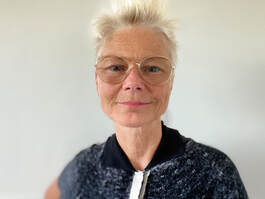 What is the name of the piece that you have in Grabbed? The Worlds Words Make What was the inspiration for your piece? What compelled you to write it? My piece began with a completely different start, intent, and story. It started as a piece about the day when I was 7 or so and I was sat down to listen to a Bill Cosby stand-up album in someone’s kitchen to keep me busy while my mom was visiting there. I didn’t yet know that there was such a thing as stand-up comedy, and that it was meant for laughing. Sitting there at that kitchen table, I didn’t want to be rude by laughing out loud, and so I suppressed all my laughter while I waited for my mom. Ultimately, the piece was meant to talk about reconciling that memory of innocence with what we know of Cosby now. But as I started to recount the Cosby anecdote for Grabbed, I started to remember other instances of innocence pierced—instances that started at around the same time as that evening I listened to stand-up—and that led to the piece as it is now: an enumeration of all the transgressions and aggressions I’ve endured. (I’ve since remembered a few other encounters that were missed in the count.) What compelled you to submit your work for this anthology? Was it a difficult decision? If so or if not, why? A lot of my art production is auto-biographical in some way—films; photography; composite work—and so I didn’t give my piece for Grabbed particular thought in terms of exactly what I was writing about. It was only later that I realized I was exposing something about myself that almost no one is aware of, and I began to feel self-conscious about the disclosures. (I still haven’t decided if I’m going to tell colleagues at work about the book. Sorry.) Why did you choose this particular form or genre for this piece? The 1st person present tense took over early on. The dispassionate tone, stark and almost dissociative, very much mimics the way these memories play out in my head, still today. Listing the incidents across decades struck me as effective in conveying the ubiquity, variety, and ceaseless nature of unwanted sexual attention, aggression, and abuse. As a writer, do you feel obliged to share difficult experiences? I don’t feel obliged to share difficult experiences—but I happen to gravitate to the personal in my work. I think it’s important for people to name the unnamed, to bring into the light all that’s cloaked. Keeping things in the dark is very convenient for abusers, and for those who remain attached to juvenile ideals about the world and the people in it. Culture and society won’t shift consciousness, policy, and budget allocations until there’s enough of a groundswell on issues that it’s no longer tenable to deny what is. Artists tend to lead the pack when it comes to talking about the uncomfortable, and from there, eventually, it moves to the centre. (It’s not always and only artists, but they’re often in the first mix.) What do you feel the impact of the #MeToo movement has been on your work, if any? When #MeToo hit the scene, I felt it personally, coming out for the first time and adding myself to those who posted it on my social media walls. Since writing my piece for Grabbed, however, I notice the impact more in my daily life than in my work. I notice more than usual all the ways men take liberties; I notice more than usual all the social conditioning. What would you say to another writer who has been uncomfortable or silent about their experience? How can they begin to share their experiences? It’s not my place to make recommendations to other artists about what they address in their work. This is especially true in the sensitive matter of sexual assault and its continuum of behaviours. I would, in fact, be more inclined to recommend counselling before I would recommend making art about such a thing. How can a publication such as Grabbed help to empower or heal readers? Knowing we’re not alone in our experiences is huge. And to see a compendium of thoughtful, brave work on the topic, and in such volume, is a true testament to the fact that none of us are alone in our experiences of sexual assault. I hope Grabbed readers who themselves are survivors absorb this knowledge as a form of companionship and solidarity, and, ultimately, feel themselves to be part of a collective sovereignty; I hope the other readers gain insight into the impacts of sexual assault, grasp the pervasiveness of the issue, and come to understand its intrinsic ties to the failed social project called patriarchy, and its spawn, misogyny. Zoe Welch is a photo-based artist and writer. Her poetry and photographic work have appeared in the French Canadian publications Ciel Variable and La Revue des Animaux; her film Landing: le film pour Loïc was part of the National Film Board of Canada’s program on love that was presented at La Cinémathèque québécoise where the film is now also part of the digital collection; and she contributed a written piece to the anthology and New York Times bestseller, Women in Clothes. Her public art has been presented in Seattle as part of King County’s City Panorama program in conjunction with the Photographic Center Northwest; in Miami as part of #project305 in conjunction with the New World Symphony; and as part of the New York City Tree Alphabet project. In her current work, Zoe is examining what it means to live in US, where she moved in 2016. She’s the museum educator at The Wolfsonian – FIU where she leads K-12 and youth & programming. 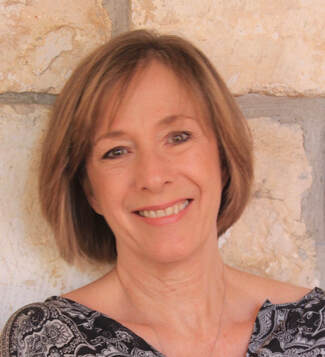 What is the name of the piece that you have in Grabbed? In Memoriam Ann What was the inspiration for your piece? What compelled you to write it? It’s a true story: my husband had a friend from grad school that I met when we were all actors in New York. In the early eighties, it was just a matter of course for women to be sexually harassed—strangers commenting on your appearance or telling you to smile, catcalls when you walked past a construction site—and sometimes it got physical. Ann was stunningly beautiful, so I’m sure she got more than her share. What made this incident memorable was her fierceness in fighting back. That was unexpected back then, especially from a seemingly demure southern woman. Why did you choose this particular form or genre for this piece? It was a small anecdote in scope, so I decided to write a very short piece. I’m not sure how one would label this, poem or lyrical prose. The borderlines of genre are blurry for me. As a writer, do you feel obliged to share difficult experiences? I don’t write out of obligation, I write out of what fascinates or compels me, the stories that keep nagging at me. Maybe that a kind of obligation, but it’s an obligation to the story. Debra Dean is the bestselling author of four critically acclaimed books that have been published in twenty-one languages. Her debut novel, The Madonnas of Leningrad, was a New York Times Editors’ Choice, a #1 Booksense Pick, a Booklist Top Ten Novel, and an American Library Association Notable Book of the Year. Her newest book, Hidden Tapestry, tells the true story of Belgian-American artist Jan Yoors – childhood vagabond, wartime resistance fighter, New York bohemian – and the two women who agreed to share his life. New York Times bestselling author Ross King calls it “one of the most remarkable artistic stories of the twentieth century.” A native of Seattle, Debra and her husband live in Miami, where she teaches on the creative writing faculty at Florida International University. 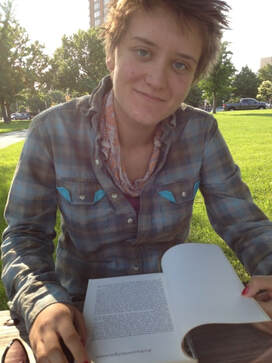 What is the name of the piece that you have in Grabbed? "What We Did This Year" and "Date Grape" What was the inspiration for your piece? What compelled you to write it? "What We Did This Year" was written amid the deluge of #MeToo stories my friends were sharing on social media. I remember that so many of us felt, at that time, a kind of insidious anguish about this lifelong phenomenon, finally more fully named by Tarana Burke, the founder of #MeToo. Yes, we always share these stories with our friends—"Guess what happened to me when I was walking from the car just now to get coffee with you?" or "Have I ever told you that weird story about my college boyfriend?"—but for so many friends to spell out their stories at once was more than just triggering; it was being plunged into cold water and held down by the same man we all knew and had never been unafraid of. We couldn't laugh off any of the stories like we sometimes do. We had to sit with them. "What We Did This Year" was written on hour-long shuttle bus rides I took between the distant campuses of Florida International University during graduate school. I used these bus rides as my writing time. There were usually as many passengers as there were seats, so I often sat next to a stranger. One day, the guy sitting next to me fell fast asleep, and as the bus snaked down I-95, taking a curvy detour near the airport, the sleeping man flopped over into my chair, my personal space. Squeezed into the corner of the seat I was entitled to, I wondered what it would be like to experience as much comfort in public as this man seemed to. I also wondered why it felt so hard for me to wake him up, why even the thought of stirring him caused me anxiety, as if I would have been the one invading his space. I very often think of something that happened while I was taking a walk as a teenager in Milwaukee. I liked taking very long walks by myself in high school because it represented the freedom I so desperately wished for. I didn't have a car. I had pink hair at the time. A man who claimed he was a hairdresser complimented my hair, my clothes (to be complimented was also something I desperately wanted), and gestured to his parked van. I was four or five miles from my house. He told me he would drive me anywhere I wanted to go. Luckily, I didn't get into the van and never saw the man again, but I didn't tell anyone about the incident until I was an adult because I was afraid it would mean I would not be allowed to take walks by myself anymore. I knew that the reaction would be a clamp-down on my small teenage freedoms instead of an acknowledgement of what I believed to be the truth: I had proven my strength, my ability to exit that situation successfully. Of course, it wasn't my fault that the situation happened, and it wouldn't have been my fault, either, if I had taken the man up on his offer of a ride. What kind of adult man tries to pick up teenage girls? A decade later, I was an adult working with young people, still in Milwaukee. Some of the teenage girls in our program said that men in cars came to the bus stop after the youth program was over, targeting these girls they knew would be waiting to take public transit home. These men were offering them rides and all sorts of other things. Nothing had changed. But also, something had: I was glad that the girls felt comfortable telling us what had happened, and that they knew we would believe them. We were able to figure out a solution together. I very often think about a walk I took with a friend to a shelter, once. This friend had been kidnapped by a boyfriend who turned out to be an abusive pimp. He'd taken her from Milwaukee to Chicago, but she had found her way back. It was the dead of winter. There was a lot of snow on the ground. "They are everywhere," she said. She was walking sideways, looking all around her as if the abusive boyfriend had spies in the trees. She was trying to hide her face behind the collar of her winter coat. We got to the shelter and she disappeared inside. I walked back through the snow alone, under the darkening sky. "What We Did This Year" is for all of us, the survivors and the witnesses. "Date Grape" is a poem written from a fount of unending anger. In 2016, a man named Jeremy Bergener submitted a rape-themed suggestion to a crowd-sourced beer recipe contest at MobCraft Brewery in Milwaukee. It was made from dates and grapes and called "Date Grape." MobCraft changed the name suggestion to "Dates & Grapes" on their website until public scrutiny caused them to finally take the whole thing down. I'll admit that I snooped on Jeremy Bergener's Facebook page at the time of the incident because I wondered, what kind of person makes a joke like this? I discovered several comments from Bergener's father voicing his support of his son's rape humor. I couldn't say it was surprising. This was right around the time of not only the 2016 election, but another incident in which a bar owner named Jay Stamates published a disturbing ad for his bar, Sabatic. In the ad, Stamates posed in his underwear (yes, his underwear) next to a dumpster while holding a beer and a cigarette. Published in Milwaukee's alt weekly, the text of this ad read, "Our back alley: Where 50% of Bradley Tech [High School] pregnancies begin and end." The bar is about two blocks away from the high school. I don't think I need to explain the multitude of ways in which this ad was offensive, but at the time, I knew several women, including an entertainment journalist, who spent a ton of energy defending Stamates on social media. He did attempt to make an apology, but I do not accept it. I wanted to write a letter to these men from my teenage girl self, my pro-choice self, my adult beer drinking self, myself as a witness to the ways men elevate and support each other through abusive language. Women's lives and happiness are their collateral damage, but to these men, it's incidental. They're laughing at each other's jokes already, anyway. "Date Grape" and "Our back alley: Where 50% of Bradley Tech pregnancies begin and end": both of the incidents that necessitated my poem consist of men using language to control, punish, and re-injure girls and women under the threadbare, flimsy, belittling guise of humor. How can a publication such as Grabbed help to empower or heal readers? I am always thinking about Muriel Rukeyser's lines from her poem "Kathe Kollwitz": "What would happen if one woman told the truth about her life?/ The world would split open." One of the vast number of gifts feminism has given me is the chance to read the stories of other humans working for a healed world. Anthologies were essential to me as a teenager when I was first learning about models for a life. Reading has split my world open countless times, and it's why I continue to devote so much of my time and energy to language. I know that Grabbed will do this for readers, and I hope it will encourage them to tell their own stories, especially the ones they're figuring out how to tell for the first time. Freesia McKee is author of the chapbook How Distant the City (Headmistress Press, 2018). Her words have appeared in cream city review, The Feminist Wire, Painted Bride Quarterly, CALYX, Gertrude, So to Speak, Nimrod International Journal, and the Ms. Magazine Blog. She lives in North Miami. Find her online at FreesiaMcKee.com or on Twitter at @FreesiaMcKee. 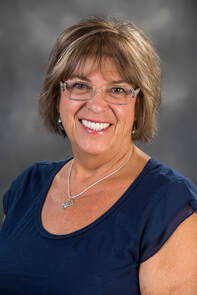 What is the name of the piece that you have in Grabbed? "Redemption" What was the inspiration for your piece? What compelled you to write it? I decided to do a series on Fairy tales. I wanted to rewrite them from a feminist perspective. I think "Redemption" was the first of the series that eventually developed. What compelled you to submit your work for this anthology? Was it a difficult decision? No, it was not difficult. It was one of the few that I have written that are about various kinds of abuse or uncomfortable situations. Why did you choose this particular form or genre for this piece? I always write poetry, so this was no different than most of what I've written. Can you speak to the evolution of writing your piece? How long did it take you to write this piece, including revision? Probably a day. Most of my poems that work don't take more than a day (or night, actually, since I write at night). As a writer, do you feel obliged to share difficult experiences? Why? I share whatever comes to my mind as a poem. Sometimes they are extremely difficult topics, and sometimes they are not. What do you feel the impact of the #MeToo movement has been on your work, if any? I really can't say the movement has impacted me one way or another. I've always been honest in my poems. What would you say to another writer who has been uncomfortable or silent about their experience? How can they begin to share their experiences? I would say to write from your heart. Write what is true, feels true, and write what you know. And never be afraid of what people might say. How can a publication such as Grabbed help to empower or heal readers? I think it's important for people to know they are not alone, that others have had similar experiences, and seemed to have survived. It's important to feel INCLUDED, not excluded. Barbra Nightingale’s newest book, Alphalexia, is with Finishing Line Press. She has eight other books, including Two Voices, One Past (Yellow Jacket Press, 2010), Geometry of Dreams (Word Tech, 2009). Over 200 of her poems appear in such journals as Rattle, The Florida Review, The Apalachee Review, Mississippi Review.com, Barrow Street, Calyx, Kalliope, Many Mountains Moving, Birmingham Review, Chattahoochee Review, The Kansas Quarterly and many others. Her book, Singing in the Key of L won the 1999 NFSPS Stevens Poetry Prize. She is an emeritus professor from Broward College, and currently an associate editor with the South Florida Poetry Journal. |
Grabbed BlogHave a blog idea for us? Submit it here. Archives
October 2020
Categories |
|
BUY GRABBED
|
If you or anyone you know is a victim of domestic violence, please call The National Domestic Violence Hotline: 1-800-799-7233 1-800-787-3224 (TTY) En Español: 1.800.799.7233 |
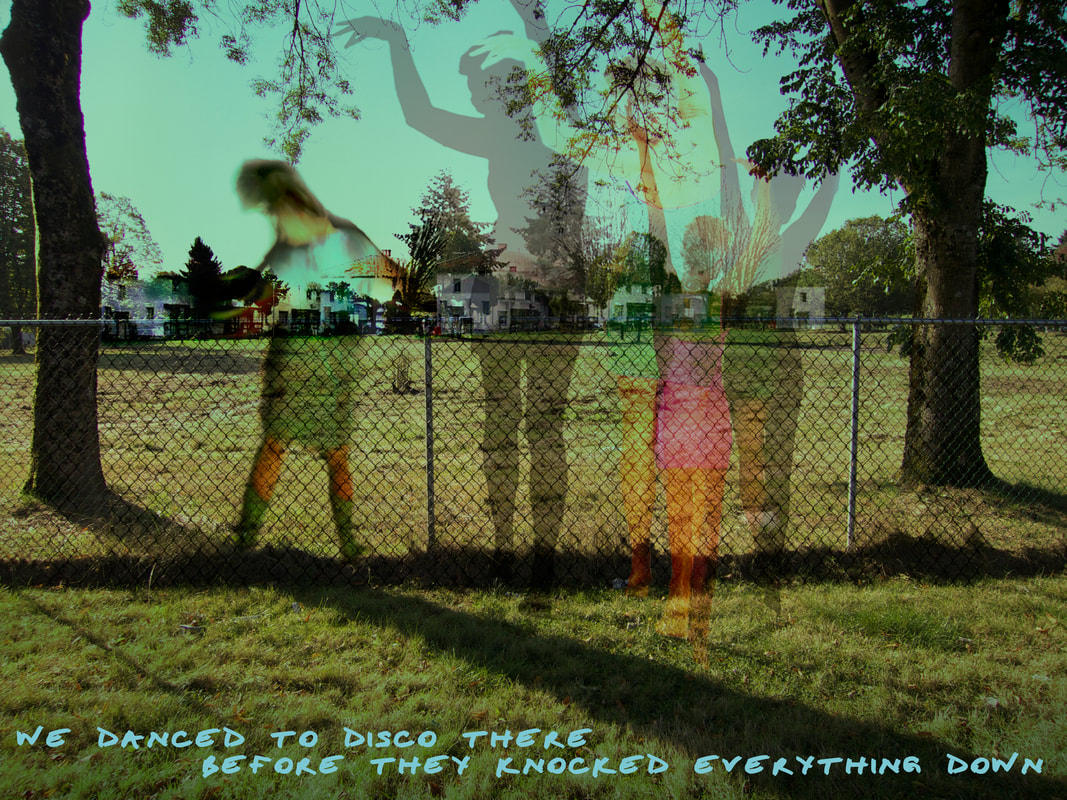
 RSS Feed
RSS Feed







